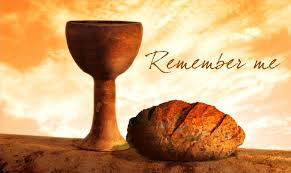 We will get back to our discussion of what happens to mission, mercy and witness when we live in an environment where everything is defined by rights later but we are entering the most Holy time of the Christian calendar. On this night Jesus instituted the Lord’s Supper and said that we should receive it and celebrate it “in remembrance” of Him.
We will get back to our discussion of what happens to mission, mercy and witness when we live in an environment where everything is defined by rights later but we are entering the most Holy time of the Christian calendar. On this night Jesus instituted the Lord’s Supper and said that we should receive it and celebrate it “in remembrance” of Him.
The Biblical meaning of remembrance is more than a simple remembering, more than just having a vague idea of something that happened long ago. Instead it is an “anamnesis”; a making present of past events! (Cf. Num.l0:10; also Israel’s anamnesis or remembrance, of the Exodus, as a making present and potent in the lives of the people the past events of God’s deliverance.) B. The once-for-all death of Christ is therefore remembered and made present for us tonight. (“Do this in remembrance of Me!”) This sacrament is the memorial of His perfect Passion and death for our sins. “But if the Eucharist is a memorial of the Passion of our Lord, it is also the abiding witness of His resurrection: only a church which possessed a living experience of the risen Christ in her midst could have celebrated week by week the memory of how on that dreadful night on which He was betrayed the Lord Jesus took bread and made eucharist. It was no sad, funerary commemoration which the apostles kept: ‘breaking bread at home, they did take their food with gladness and singleness of heart, praising God’ (Acts2:46ff.).” (Alan Richardson, An Introduction to the Theology of the New Testament, p.367)

